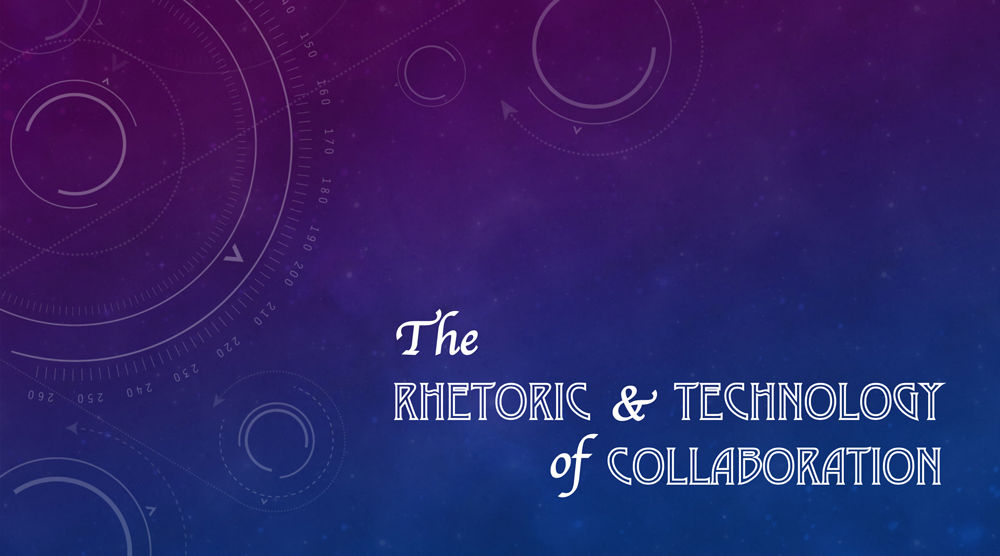Background
In this collection, four graduate scholars investigate a suite of collaborative technologies, namely join.me, Facebook Messenger, Scalar, and WebEx, for their features and rhetorical implications on our communication, work, and pedagogy. Using various theoretical frames drawn from rhetoric, technical communication, and team science literature, these scholars evaluate the design of specific virtual workspaces and provide ideas for enhancing the platforms for more rhetorically sound collaboration. Each evaluation concludes with pedagogical recommendations for teachers to consider should they decide to deploy the technologies in their classes.
Read the reviews:
- join.me: A collaborative mainstay in industry with potential uses in transformative, ecologically minded collaborations by Jeremy Rosselot-Merritt
- Facebook Messenger: Distraction or collaborative tool? by Katlynne Davis
- Scalar: Open-source authoring for born-digital scholarship by Eduardo Nevarez
- WebEx: Flexible video conferencing for large-group collaboration by Chakrika Veeramoothoo
About the Authors
Jeremy Rosselot-Merritt is a Ph.D. student in the Rhetoric and Scientific and Technical Communication program at the University of Minnesota, Twin Cities. His research deals with technical communication pedagogy, workplace writing, and usability, as well as emerging and open source technologies.
Katlynne Davis is a first-year Ph.D. student in the Rhetoric and Scientific & Technical Communication program at the University of Minnesota. She is interested in how social media is used in business and technical communication to build relationships with stakeholders and customers. She is also interested in technical communication pedagogy and theory, digital rhetoric, and human-computer interaction.
Eduardo Nevarez is a first-year Ph.D. student at the University of Minnesota in the Rhetoric and Scientific and Technical Communication program. His research interests align with transnational and intercultural communication, composition theory and pedagogy, technical and risk communication, posthuman embodied technologies, and applied research methodologies.
Chakrika Veeramoothoo is a Ph.D. student in the Rhetoric and Scientific and Technical Communication program at the University of Minnesota, Twin Cities. Her research interests include the rhetoric of protest movements, technical communication and composition pedagogy and the use of wearables in workplaces.

